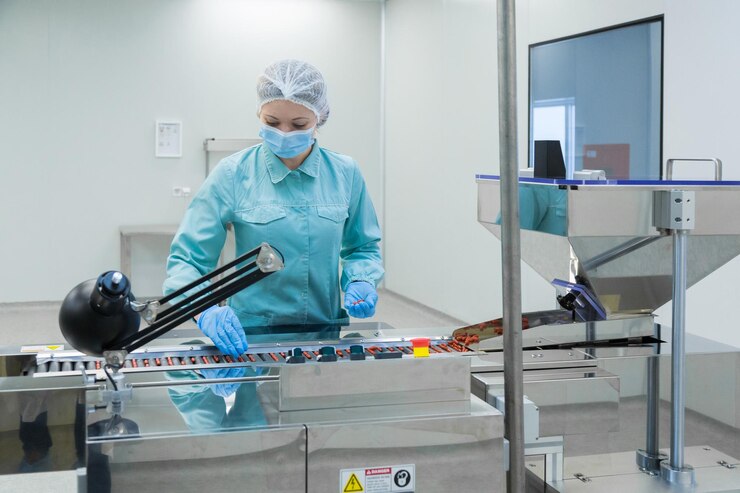Diabetes already causes an epidemic worldwide, with 578 million expected by 2030 and 700 million in 2045. In the backdrop of the ever-growing prevalence of diabetes, pharma third-party manufacturing companies face various challenges like high R&D costs, regulatory hurdles, and complexities in their distribution networks. The need for such partnerships will be very prominent for overcoming the multiple challenges and assuring diabetes care. Read on to explore the importance of such strategic collaborations between pharmaceutical contract manufacturers.
Importance of Partnering
Leveraging Expertise and Resources
Manufacturers with experience producing diabetes drugs bring expertise in drug formulation, regulatory compliance, and distribution logistics. In this respect, partnering companies have an avenue to concentrate on their core competencies, such as research and development, while leaving the production aspects to those who have considerable experience with the complex needs related to the treatment of diabetes. Such cooperation with CDMO companies may result in smoother manufacturing processes and cost savings, which is more important for better patient outcomes.
Improving Access and Affordability
Partnerships involving global pharmaceutical companies and pharma contract manufacturing companies are essential in improving access and affordability to diabetes medicines. In Indonesia, for example, Novo Nordisk partnered with a local manufacturer, Bio Farma, to increase the production of insulin and other diabetes medication to make up for the vast treatment gap of 19.5 million Indonesians. The advantage of such partnerships is that they make essential medications available at an affordable cost, courtesy of experienced pharmaceutical contract manufacturers.
The partnerships of pharmaceutical companies with contract manufacturing organizations pharma will be meaningful in product adaptation to regional needs, addressing the specific requirements of the medications that the patients in a particular area have been put on. Such a partnership develops from the utilization of pharma third-party manufacturing capabilities, a general reduction of supply chain costs, and efficiency in drug distribution for patient benefit.
Driving Innovation
Therefore, core partnerships between pharmaceutical companies and specialized pharmaceutical contract manufacturers are fundamental accelerators in innovation for the care of diabetes patients, enabling the creation of new treatments and technologies. This can allow the integration of advanced digital health solutions like mobile applications for glucose monitoring and telemedicine platforms and enhance patient management and treatment adherence.
They also help in personalized medicine approaches that offer therapies better directed toward a single individual profile, thereby enhancing efficiency and lessening adverse effects. Advanced monitoring technologies—including continuous glucose monitors and intelligent insulin pens—are developed under partnerships to empower patients to self-manage diabetes with ease.
Personalized Medicine Approaches
A second significant advantage of the partnership with large producers of diabetes medications could be the creation of personalized medicine. Using data accumulated from very diverse populations of patients, such partnerships could allow for the production of individualized treatment programs based on specific needs. CDMO companies contribute significantly to this by offering CDMO services that enhance the efficacy of treatment and minimize side effects since therapies can be targeted on a specific patient profile according to their genetics, metabolism, and behavior.
The research and development-based partnership can explore new targets and mechanisms of action for therapy. This will lead to identifying novel drug candidates that could deliver more successful therapeutic outcomes in specific patient populations. Therefore, this presents better treatment outcomes and a more patient-centric healthcare model in which treatments are tailored to the individual.
Risk Mitigation and Resource Sharing
Collaboration with experienced pharmaceutical contract manufacturers allows pharmaceutical companies to distribute some drug development and manufacturing risks. The pharmaceutical industry is very risk-intensive, with high attrition rates across clinical trials and costly research and development projects. This is a way for these firms to diffuse this risk further and make it more feasible to take up an innovative project that may otherwise be perceived as too risky.
In addition, partnerships offer a facility for sharing resources that multiple companies can combine with expertise in technology and infrastructure. This facilitates the sharing of the manufacturing process at a lower cost, enhancing the production capacity to meet the growing demand for diabetes medications.
Global Health Challenges
Meeting Growing Global Demand
In 2019, approximately 374 million adults had impaired glucose tolerance, a condition placing them at high risk for developing type 2 diabetes. This number will continue to grow, reaching an estimated 454 million by 2030 and 548 million by 2045. The burgeoning situation, therefore, underlines a dire need for scalable solutions in diabetes care, especially in LMICs where medication accessibility may be severely limited. This is further demonstrated by the call for experienced pharmaceutical contract manufacturers to lead the scale-up of production with the intent that various types of insulin products will be manufactured, including biosimilars, to meet the needs of diverse patients.
Improvement in Health Outcomes
With effective partnerships, the health outcomes may improve because, though diabetes medicines are available, they are well assimilated into the health systems. Such collaboration may improve disease management programs, thereby increasing awareness of diabetes care and allowing for early diagnosis and treatment, which is fundamental in preventing the complications of uncontrolled diabetes.
This means the strategic partnership with the best CDMO companies and pharma contract manufacturing firms will continue to be the leading beneficial factor in the pharmaceutical industry as the global diabetes epidemic continues to surge, acting as a gateway to more effective and sustainable solutions for diabetes management.
Final Reflections
This entails a partnership with pharma third-party manufacturing companies who have gained experience over the years to help meet the many challenges in care. The partnerships will transform the pharmaceutical industry, with increased access to innovation spurring better health conditions for the millions affected by diabetes.


